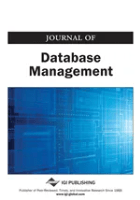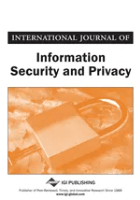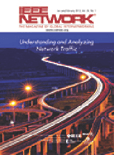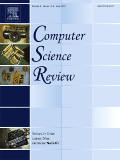
Blockchain-Research and Applications
Scope & Guideline
Exploring the future of technology through blockchain research.
Introduction
Aims and Scopes
- Blockchain Technology Applications:
The journal emphasizes research on diverse applications of blockchain technology, including but not limited to finance, supply chain management, healthcare, education, and governance. This reflects the growing recognition of blockchain as a transformative technology across industries. - Security and Privacy in Blockchain Systems:
A core focus is on the security challenges and privacy concerns associated with blockchain implementations. Papers often explore cryptographic methods, smart contract vulnerabilities, and the implications of regulatory frameworks on blockchain privacy. - Performance Optimization and Scalability:
Research on optimizing blockchain performance, including consensus mechanisms, transaction processing, and network scalability, is prevalent. This area is crucial for the practical adoption of blockchain technology in high-volume environments. - Interdisciplinary Approaches:
The journal encourages interdisciplinary research that combines blockchain with fields such as IoT, AI, and big data. This reflects a trend towards integrated solutions that leverage blockchain's capabilities in conjunction with other technologies. - Governance and Regulatory Frameworks:
Exploring governance models for decentralized systems, including DAOs (Decentralized Autonomous Organizations) and the implications of blockchain on regulatory compliance, is an important area of focus, reflecting the need for structured governance in decentralized environments.
Trending and Emerging
- Blockchain in Education:
Increasing attention is being paid to the application of blockchain in higher education, particularly in areas like credential verification and administrative efficiency. This trend highlights the potential of blockchain to enhance trust and transparency in educational systems. - Integration with Artificial Intelligence and IoT:
Research exploring the synergies between blockchain technology, AI, and IoT is on the rise. This includes applications that leverage deep learning for optimizing blockchain processes, indicating a trend towards smarter and more efficient systems. - Privacy-Preserving Solutions:
There is a growing focus on developing privacy-preserving mechanisms within blockchain frameworks. This includes techniques for secure data sharing and compliance with privacy regulations, reflecting increased awareness of data protection issues. - Decentralized Governance Models:
The exploration of decentralized governance models, including the role of DAOs and community-driven decision-making, is gaining momentum. This trend is significant as it reshapes traditional governance structures and enhances stakeholder engagement. - Sustainability and Environmental Impact:
Research on the environmental impact of blockchain technology, particularly its energy consumption, is becoming increasingly relevant. This includes studies aimed at developing more energy-efficient consensus mechanisms and exploring blockchain's role in sustainability initiatives.
Declining or Waning
- Initial Cryptocurrency Focus:
Early publications often centered heavily on cryptocurrencies like Bitcoin and Ethereum. While these remain important, the focus has shifted towards broader applications of blockchain technology beyond just digital currencies. - Basic Theoretical Frameworks:
Research that primarily revolved around foundational theories of blockchain without practical applications has seen a decline. The journal now favors studies that demonstrate real-world applications and implications of blockchain technology. - Niche Use Cases:
Specific niche applications of blockchain, such as those limited to isolated sectors or less impactful use cases, have become less prominent. There is a trend towards more comprehensive and impactful applications that address larger societal or industrial challenges. - Single Technology Solutions:
Research that proposes solutions based solely on blockchain without considering integration with other technologies (like AI or IoT) is becoming less common. There is a clear shift towards hybrid approaches that combine multiple technologies for enhanced effectiveness.
Similar Journals

INFORMATICA
Fostering interdisciplinary collaboration for a brighter academic future.INFORMATICA, ISSN: 0868-4952, E-ISSN: 1822-8844, is a prestigious academic journal published by the Institute of Mathematics and Informatics, located in the Netherlands. Established in 1990, this journal has carved a significant niche in the fields of Applied Mathematics and Information Systems, holding a commendable Q2 ranking in both categories as of 2023. With a Scopus ranking of #68 in Applied Mathematics and #123 in Information Systems, INFORMATICA boasts an impressive percentile standing, demonstrating its high impact and relevance in contemporary research. The journal promotes rigorous scholarship, disseminating innovative research findings and methodologies that contribute to the advancement of mathematical and informatics theories and practices. Although it does not currently operate as an open-access journal, it provides invaluable resources for researchers, professionals, and students looking to deepen their expertise and knowledge in these dynamic fields. With a commitment to fostering academic exchange and interdisciplinary collaboration, INFORMATICA remains an essential platform for those committed to pushing the boundaries of knowledge in mathematics and informatics.

JOURNAL OF DATABASE MANAGEMENT
Exploring Innovations in Database ManagementJOURNAL OF DATABASE MANAGEMENT, published by IGI GLOBAL, stands at the forefront of research in the fields of Information Systems, Hardware and Architecture, and Software, making it an essential resource for researchers, professionals, and students alike. With an ISSN of 1063-8016 and an E-ISSN of 1533-8010, the journal has established a significant impact in its domain, achieving a Q2 ranking in Information Systems and Q3 in both Hardware and Architecture and Software as of 2023. This reflects its commitment to disseminating high-quality research and developments within the evolving landscape of database management. The journal, which spans a wide array of topics from theoretical frameworks to practical applications, encourages contributions that not only advance academic discourse but also address real-world challenges. Although not open access, its rigorous peer-review process ensures the publication of impactful and credible content. With converged years from 2003 to 2024, it continues to provide a robust platform for scholarly communication, facilitating the exchange of innovative ideas and fostering academic growth in a critical area of computer science.

Future Internet
Illuminating the Path of Internet Research and DevelopmentFuture Internet is a leading open-access journal published by MDPI, dedicated to advancing the field of Internet technologies and communication networks. Since its inception in 2009, the journal has provided a platform for rigorous research and innovative ideas in the context of the rapidly evolving digital landscape. Based in Switzerland, it has established itself as a prominent publication, earning a commendable Q2 ranking in the category of Computer Networks and Communications for 2023. With a Scopus ranking of #87/395 and a notable 78th percentile, Future Internet fosters interdisciplinary collaboration, making valuable contributions to the understanding of Internet systems, protocols, and applications. Researchers, professionals, and students alike will find a wealth of insightful articles addressing both theoretical foundations and practical implementations. The open-access format ensures that all readers have immediate and unrestricted access to high-quality research, facilitating knowledge dissemination and informed decision-making in academia and industry alike.

Acta Informatica Pragensia
Advancing Insights: Where Computer Science Meets Information Systems.Acta Informatica Pragensia is a prominent open access journal published by UNIV ECONOMICS, PRAGUE, which has been dedicated to advancing the fields of Computer Science Applications, Information Systems, Library and Information Sciences, and Management Information Systems since its inception in 2012. Situated in the beautiful Czech Republic, this journal aims to foster academic dialogue and disseminate high-quality research across these interdisciplinary domains. With an H-index indicating its growing impact, Acta Informatica Pragensia offers authors the opportunity to publish their findings in a Q4 ranked journal within significant categories according to the 2023 metrics, including a notable Q3 in Library and Information Sciences. Its placement in the Scopus ranks also showcases its relevance in the field, including a solid position in the 58th percentile for Library and Information Sciences. The journal's open access model ensures that research is widely available, empowering students, researchers, and professionals to engage with the latest innovations and trends. Submissions from diverse backgrounds are welcomed, making it an essential resource for those seeking to contribute to the evolution of information technology and systems.

International Journal of Information Security and Privacy
Transforming Ideas into Actionable Security SolutionsInternational Journal of Information Security and Privacy is a pivotal resource for scholars and practitioners in the rapidly evolving field of information systems. Published by IGI Global, this esteemed journal, identifiable by its ISSN 1930-1650 (E-ISSN 1930-1669), explores critical aspects of information security and privacy, focusing on innovative approaches, technologies, and best practices that safeguard data in an increasingly digital world. Since its inception in 2007, it has contributed significantly to academic discourse, addressing major challenges faced by organizations and individuals alike. Although it currently ranks in the Q4 quartile and occupies the 249th position out of 394 in the Scopus computer science category, the journal has a commendable reach and continues to attract impactful research. As part of its commitment to advancing knowledge, the journal encourages contributions that deliver actionable insights, making it an ideal platform for researchers, professionals, and students interested in the forefront of information security. Engaging with this journal provides access to the latest findings and methodologies while offering a space for the exchange of transformative ideas in the realm of information privacy.

Information Systems and E-Business Management
Driving Excellence in E-Business ManagementInformation Systems and E-Business Management, published by SPRINGER HEIDELBERG, serves as a prestigious platform for researchers and practitioners in the fields of information systems and e-business. With an ISSN of 1617-9846 and E-ISSN 1617-9854, this journal has established its relevance in academia, achieving a notable impact factor and ranking in the Q2 category for Information Systems in the 2023 Scopus Ranks. This journal is a valuable resource for advancing knowledge, with a focused scope that encompasses cutting-edge research, theoretical advancements, and practical applications in e-business strategies, digital transformations, and information system analytics. The journal began its journey in 2005 and continues to explore the evolving landscape up until 2024. With its esteemed readership comprising researchers, professionals, and students alike, Information Systems and E-Business Management remains dedicated to enlightening its audience about significant developments in the rapidly transforming world of e-business.

IEEE NETWORK
Shaping Tomorrow's Networking Solutions TodayIEEE NETWORK is a premier journal published by the IEEE-INST ELECTRICAL ELECTRONICS ENGINEERS INC, dedicated to advancing the field of computer networks and communication systems. Recognized for its rigorous peer-review process, this journal holds a prestigious Q1 ranking in multiple categories including Computer Networks and Communications, Hardware and Architecture, Information Systems, and Software according to the 2023 metrics. With a focus on delivering cutting-edge research findings and innovative technologies, IEEE NETWORK aims to bridge academia and industry, providing a vital platform for the dissemination of knowledge among researchers, professionals, and students. While it operates under a subscription-based model, the journal remains a key resource for those seeking to stay informed on the latest trends and developments in the networking domain. Established in 1986 and continuing its publication through 2024, it serves as a critical reference for impactful research that shapes the future of networking technologies.

Computer Science Review
Unlocking Theoretical Breakthroughs in ComputingComputer Science Review, published by ELSEVIER, is a premier academic journal dedicated to advancing the field of computer science. With an impactful 2023 Scopus ranking placing it in the top quartile (Q1) of both Computer Science (miscellaneous) and Theoretical Computer Science, it stands as a vital resource for cutting-edge research and theoretical advancements. This journal, identified by the ISSN 1574-0137 and E-ISSN 1876-7745, covers a broad spectrum of topics in computer science, ensuring that it remains relevant to contemporaneous academic discourse. The journal has been continuously published since 2007 and commits to fostering an engaged scholarly community through comprehensive reviews and theoretical insights. With access primarily through subscriptions, it aims to reach both researchers and practitioners eager to explore innovative ideas and contribute to this fast-evolving discipline.

Frontiers in Blockchain
Exploring New Horizons in Blockchain TechnologyFrontiers in Blockchain is a pioneering open access journal dedicated to advancing the field of blockchain technology. Published by FRONTIERS MEDIA SA since 2019, this journal aims to facilitate scholarly discourse surrounding innovative applications, challenges, and regulatory aspects of blockchain across various sectors, including finance, computer science, and more. With an impressive Scopus ranking—21st in Economics and Finance and 16th in miscellaneous Computer Science disciplines—this journal has established itself as a critical resource for researchers, practitioners, and students alike. The journal offers comprehensive access options, allowing global readership without cost barriers, aligning with the contemporary trend toward open science. Frontiers in Blockchain serves as a vital platform for disseminating cutting-edge research and fostering collaborative advancements in the blockchain ecosystem, making it an essential choice for those looking to contribute to or stay informed about this rapidly evolving field.

Journal of Information Assurance and Security
Empowering Research, Securing the Future.Journal of Information Assurance and Security, an esteemed publication by DYNAMIC PUBLISHERS, INC, serves as a pivotal platform for the dissemination of innovative research and insights in the field of information security and assurance. With its ISSN 1554-1010 and E-ISSN 1554-1029, this journal addresses critical vulnerabilities, emerging technologies, and methodologies that fortify data integrity and uphold privacy in our increasingly digital world. Although specific metrics such as the HIndex and Scopus ranks are currently unavailable, the journal is recognized for its contributions to both academia and industry, fostering collaboration among researchers, professionals, and students dedicated to advancing security protocols. The journal does not currently offer open access but ensures comprehensive accessibility through institutional subscriptions. As cybersecurity continues to be a paramount concern globally, the Journal of Information Assurance and Security stands out as an essential resource for groundbreaking studies and practical applications that drive the future of information protection.